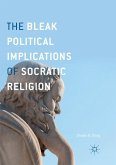In "Nationalism," Rabindranath Tagore explores the complex interplay between national identity and human values, challenging the fanaticism often associated with the concept of nationalism in early 20th-century geopolitics. Written against a backdrop of colonialism in India and rising nationalistic movements worldwide, the book employs a lyrical prose style that seamlessly intertwines philosophical inquiry with personal reflection. Tagore posits that true nationalism transcends borders and fosters a sense of global kinship, advocating for a universal vision that honors cultural diversity while warning against the dangers of exclusivity and militarism. As the first non-European to win the Nobel Prize in Literature, Tagore was deeply influenced by his diverse cultural heritage and extensive travels across the West and the East. His ideological convictions, shaped by his commitment to humanism and spirituality, underpin this work, which serves as both a critique of contemporary nationalist fervor and a plea for a more harmonious world. Tagore's profound insights resonate with readers seeking to understand the ethical dimensions of national identity amidst political strife. "Nationalism" is essential reading for those interested in the philosophical roots of modern politics and the implications of national consciousness. It invites readers to reflect on their own understanding of belonging and community, ultimately urging a movement beyond mere territorial allegiance to embrace a collective human identity.
Bitte wählen Sie Ihr Anliegen aus.
Rechnungen
Retourenschein anfordern
Bestellstatus
Storno








